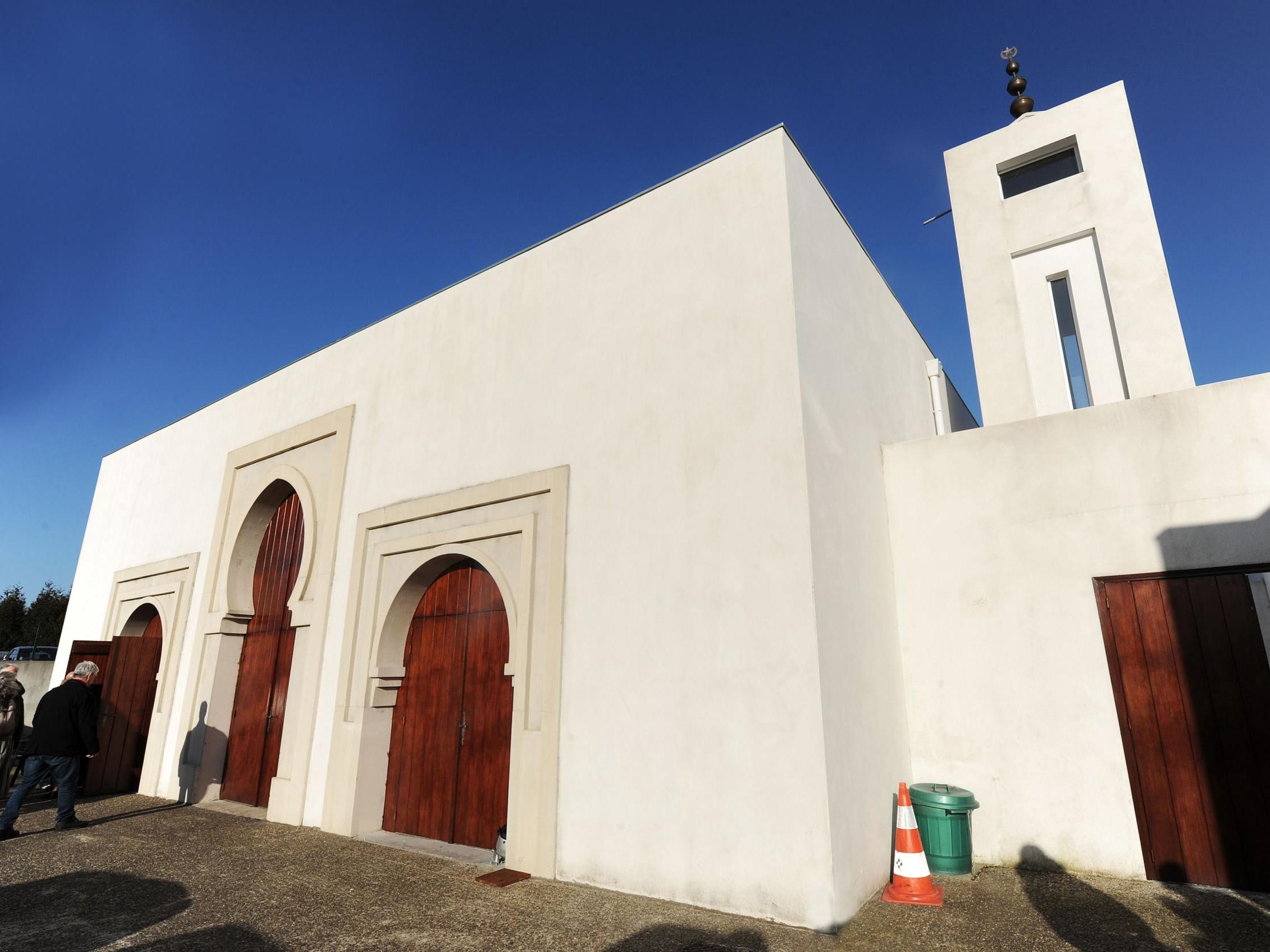The Bayonne mosque attack is the latest symptom of France’s rampant Islamophobia
Hatred towards Muslims is deeply embedded in French culture


Your support helps us to tell the story
From reproductive rights to climate change to Big Tech, The Independent is on the ground when the story is developing. Whether it's investigating the financials of Elon Musk's pro-Trump PAC or producing our latest documentary, 'The A Word', which shines a light on the American women fighting for reproductive rights, we know how important it is to parse out the facts from the messaging.
At such a critical moment in US history, we need reporters on the ground. Your donation allows us to keep sending journalists to speak to both sides of the story.
The Independent is trusted by Americans across the entire political spectrum. And unlike many other quality news outlets, we choose not to lock Americans out of our reporting and analysis with paywalls. We believe quality journalism should be available to everyone, paid for by those who can afford it.
Your support makes all the difference.Imagine the depth of sadistic hatred needed to shoot two defenceless pensioners at their place of worship. The sheer barbarism of last week’s assault on a mosque in Bayonne, southwest France, had all the hallmarks of a targeted terrorist attack. Armed with a gun, gas canisters and jerrycans full of petrol, a far-right fanatic appeared intent on setting fire to the whole building along with all those inside, including children.
After being surprised by the two men in their seventies, the gunman is said to have opened fire on both, hitting one in the chest and the other in the neck at point-blank-range. He is alleged to have poured fuel over one of the men’s car, while he was still sitting in the driver’s seat, before setting it alight. It was only thanks to the swift intervention of other Muslim worshippers that the victims were rushed to hospital and survived. Witnesses said that the car was reduced to a blackened wreck.
Claude Sinke, the 84 year-old accused, has already been charged with two attempted murders, arson and gun crimes for which he could face life imprisonment. Perhaps even less surprisingly, it has also emerged that Sinke stood as an election candidate for the Front National (FN) as recently as 2015.
The notoriously Islamophobic party was happy for Sinke to represent them in his home village of Saint-Martin-de-Seignanx, six miles from Bayonne. He won 17.4 per cent of the local council poll – not enough to win a seat, but a clear indication that his views were not considered beyond the pale.
This was despite plenty of clues to his radicalisation online: he regularly posted venom about Muslims and other minority groups. Local politicians and civil servants had him down as an extremist bigot, who should be approached with caution.
Sinke has reportedly told prosecutors that he attacked the Bayonne mosque to “take revenge” on Muslims for allegedly starting the devastating fire at Notre Dame Cathedral in Paris in April. The conspiracy theory about the disaster – one that forensic investigators have proved started accidentally– is meat and drink to the kind of people traditionally drawn to the far-right FN.
The party was founded and led for decades by the convicted racist, antisemite and Islamophobe Jean-Marie Le Pen. His daughter, Marine Le Pen, is the current head of the family party, and renamed it Rassemblement National (National Rally, RN) in a disingenuous bid to detoxify its poisonous image.
Le Pen predictably tried to distance herself from the Bayonne terror, insisting that what happened was “absolutely contrary to the values of our movement”.
In fact, nothing could be further from the truth. The Le Pen family record in public life is steeped in violence, especially against Muslims. The founders of their party, including Jean-Marie Le Pen, were defeated veterans of the Algerian War, which saw France lose the North African jewel in its colonial Empire in 1962. The conflict involved abhorrent crimes and claimed up to one and a half million Algerian civilian lives.
Scandals that have since characterised the FN’s history include its skinhead thugs drowning a young Moroccan father in the Seine following their traditional May Day rally in Paris in 1995 – while Le Pen senior was in the middle of a presidential campaign. Violent atrocities were commonplace, even while party members were challenging for high office, and for seats in parliament.
Only last week, Marine Le Pen was forced to admit that an RN candidate selected to run in forthcoming municipal elections in Strasbourg had spent 18 months in prison for racist attacks against ethnic minorities. In separate incidents, Thibault Gond-Manteaux had assaulted two men of North African origin and also set fire to Turkish fast food restaurants while carrying a gun and wearing a balaclava.
Among numerous articles of Nazi memorabilia found by police in Gond-Manteaux’s home was a copy of Mein Kampf, a swastika, and a watch engraved with SS insignia. When all of this was made public, Gond-Manteaux quit the FN, but condemnation was hardly widespread.
The truth is that the dark soul of the RN reflects a particularly malevolent side of France – a country where both Le Pens have been runners-up in presidential elections; Marine Le Pen as recently as 2017.
Sinke, who lived in a picturesque town and who had no previous criminal record, was typical of members of the seething masses who place Muslims at the centre of all of France’s problems.
They are the kind who only last month supported an RN politician, Julien Odoul, who ordered a young mother to remove her headscarf in a regional parliament. Odoul argued that he was upholding France’s values of secularism, but the fact that the woman was not breaking any law – wearing a headscarf is actually allowed in public spaces – did not stop him from humiliating her. She was accompanying a school party, which included her son, and the boy burst out crying in front of the bullying Odoul and his equally thuggish party colleagues.
Calls from right-wingers to extend an existing ban on headscarves being worn in French schools to those accompanying children on educational trips intensified after this ugly incident, and indeed in the days after the mosque attack.
French Muslim women who wear the headscarf are constantly demonised by rampant Islamophobia which dominates French public life. In October, TV journalist Olivier Galzi, likened the hijab to an “SS uniform” live on air. It followed Laurence Rossignol, the former women’s rights minister, infamously comparing those who shop in the “Islamic garment market” to “n****** who supported slavery”.
Such incendiary language is the kind employed by polemicists to spread collective guilt against Muslims at every opportunity. Despicable acts of terrorism which are just as likely to kill or maim Muslims as they are people from other backgrounds are, in particular, used to label millions as extremist criminals.
Populistic hate speak has certainly become mainstream. One of Sinke’s favourite commentators is the media pundit Eric Zemmour, who has two convictions for inciting religious and racial hatred against Muslims, and who is under investigation for a third.
Speaking to CNEWS TV channel just before the Bayonne attack, Zemmour lauded General Thomas Bugeaud, who, he said, “began massacring Muslims and some Jews” when he arrived in Algeria during the early years of French colonisation in 1836. Zemmour added nonchalantly: “Well, I’m on the side of General Bugeaud. That’s being French.”
Jean-Luc Melenchon, leader of the left-wing France Insoumise (France Unbowed) party, summed up the problem within hours of the attack involving Sinke. Melenchon called on public figures to “stop encouraging hatred”, adding: “In Bayonne the harassment of Muslims has had its effect. Enough is enough.”
The French disease of profound wickedness against Muslims has certainly found its political home within the RN. As the Bayonne attack made clear, it poses a threat far beyond toxic discourse.